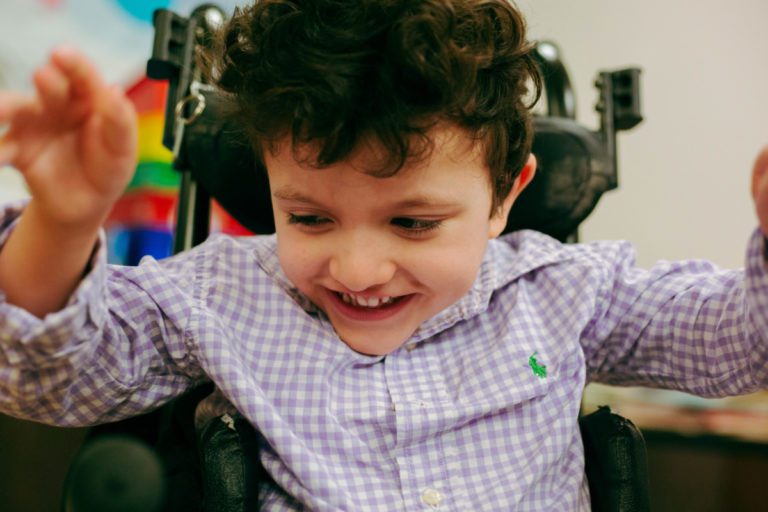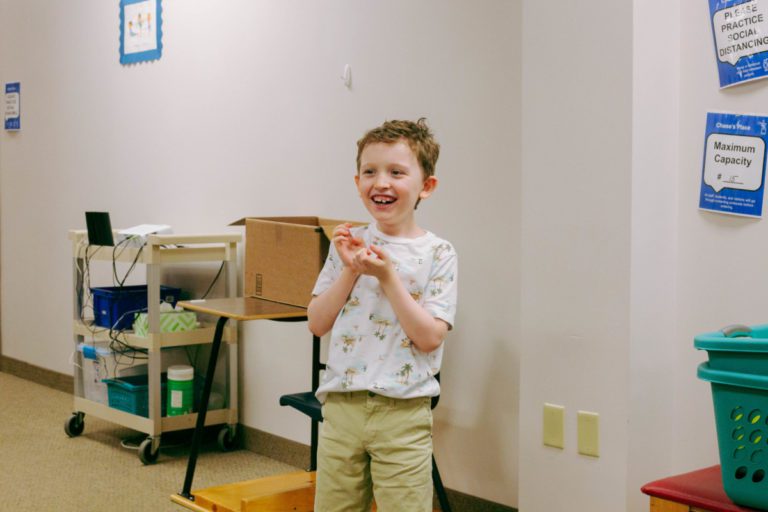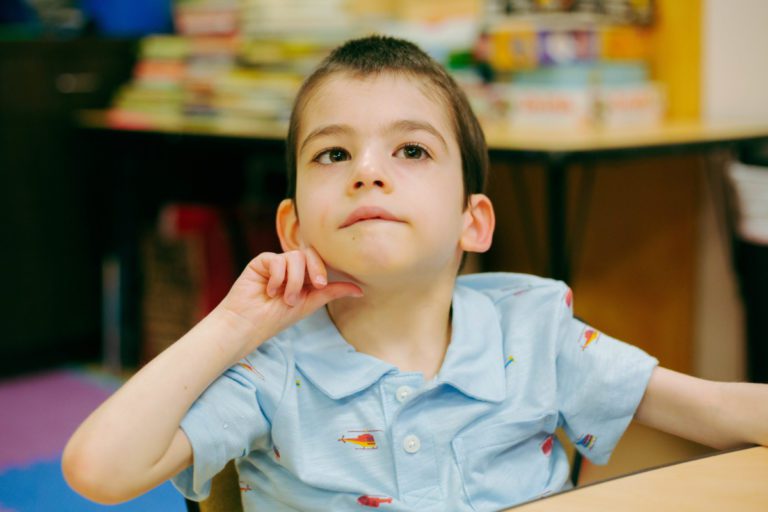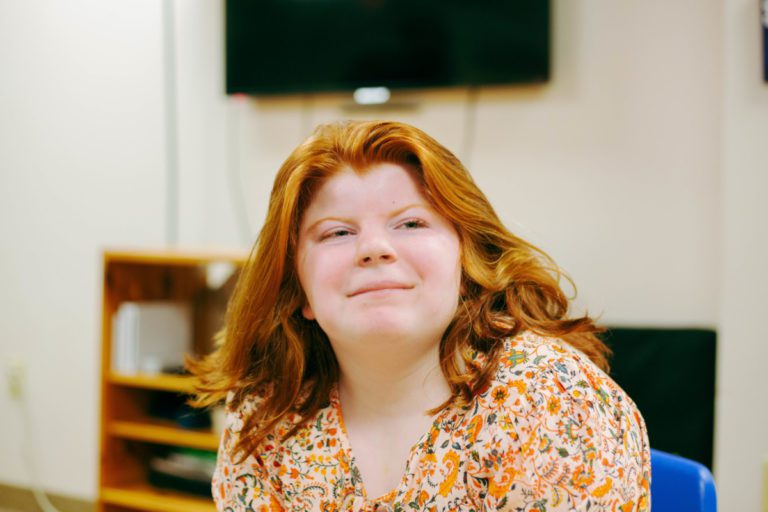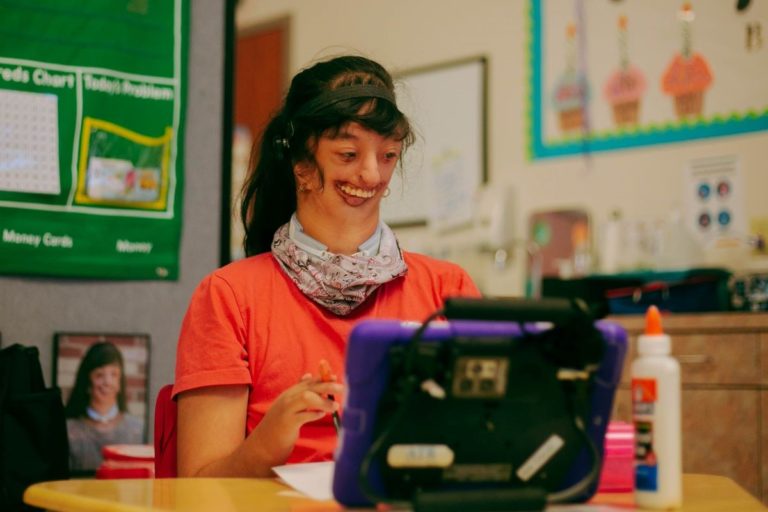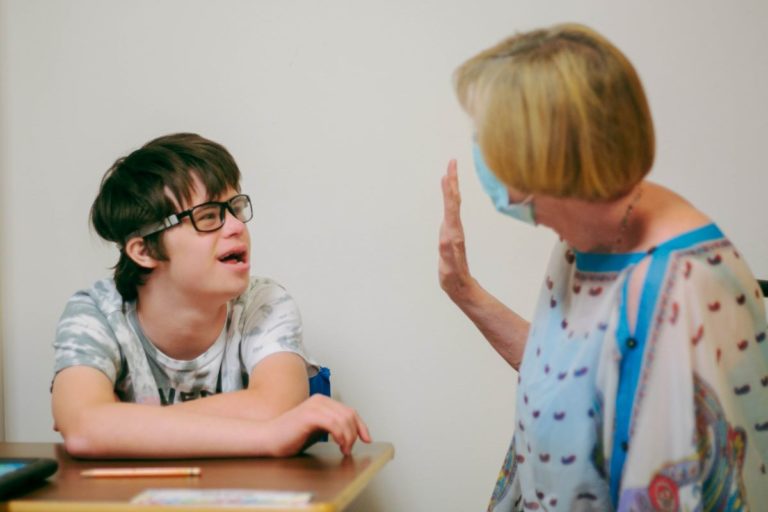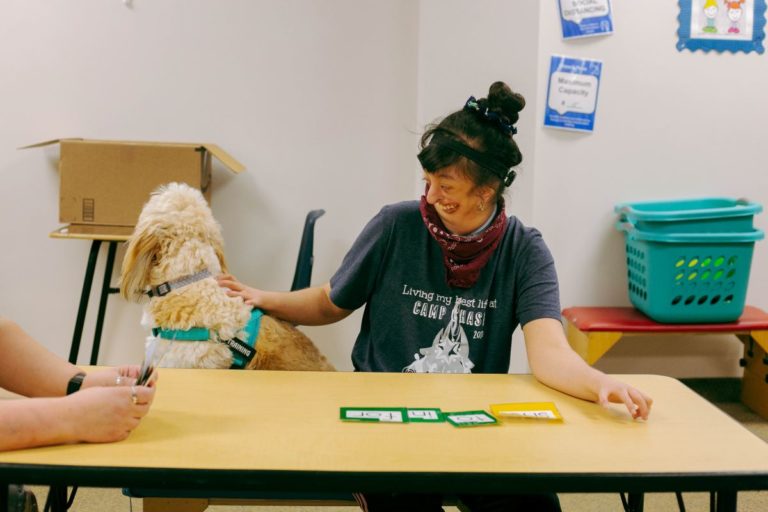The Chase’s Place Difference
Through our Day School program, Chase’s Place strives to balance the teaching of daily living skills with the teaching of functional academic skills and fine and gross motor skills. We accomplish this by focusing on individual assistance as well as supporting increased student independence to the greatest extent possible.
An Individual Education Plan (IEP) is developed with each family, following an evaluation of present needs and long-term goals. The IEP is reviewed and revised annually to re-evaluate the goals and objectives that should be pursued to further the students development.
Along with teaching, Chase’s Place integrates therapeutic services into each regular school day. A therapist provides direct services to our students and consults weekly with teachers to incorporate the student’s specific goals into their daily routines. Our services include: Speech, Occupational, Physical and Recreational Therapy.
Day School hours are 8:15am – 3:00pm.

Meet our Therapists

Jessica Mevius, Occupational Therapist
Jessica Mevius is an Occupational Therapist who joined Chase's Place in August 2018. She completed her undergraduate and graduate degrees at Texas Woman's University, majoring in Child Development with an emphasis on Occupational Therapy.
Jessica is certified in Sensory Integration techniques and is nationally certified with the National Board for Certification in Occupational Therapy.
She splits most of her time between Chase’s Place, McKinney Christian Academy, and treats children in their home setting. Jessica is passionate about enriching the lives of others through meaningful occupation, which is reflected in her unique and relatable approach.

Melinda Powell, Speech Therapist
Melinda Valentine Powell is a Speech-Language Pathologist with over 45 years of experience working primarily with pediatric populations. She has expertise in oral motor/feeding development, augmentative/assistive technology, swallowing disorders, and language disorders.
Melinda is certified in Neuro-Development Treatment (NDT) and American Sign Language (ASL) and holds the Certificate of Clinical Competence (CCC-SLP) from the American Speech-Language-Hearing Association. She is licensed by the State Board of Examiners for Speech-Language Pathology and Audiology of Texas and holds a teaching certificate for speech-language pathology in the States of Oklahoma and Texas.
Melinda's passion is working with pediatric special needs populations.

